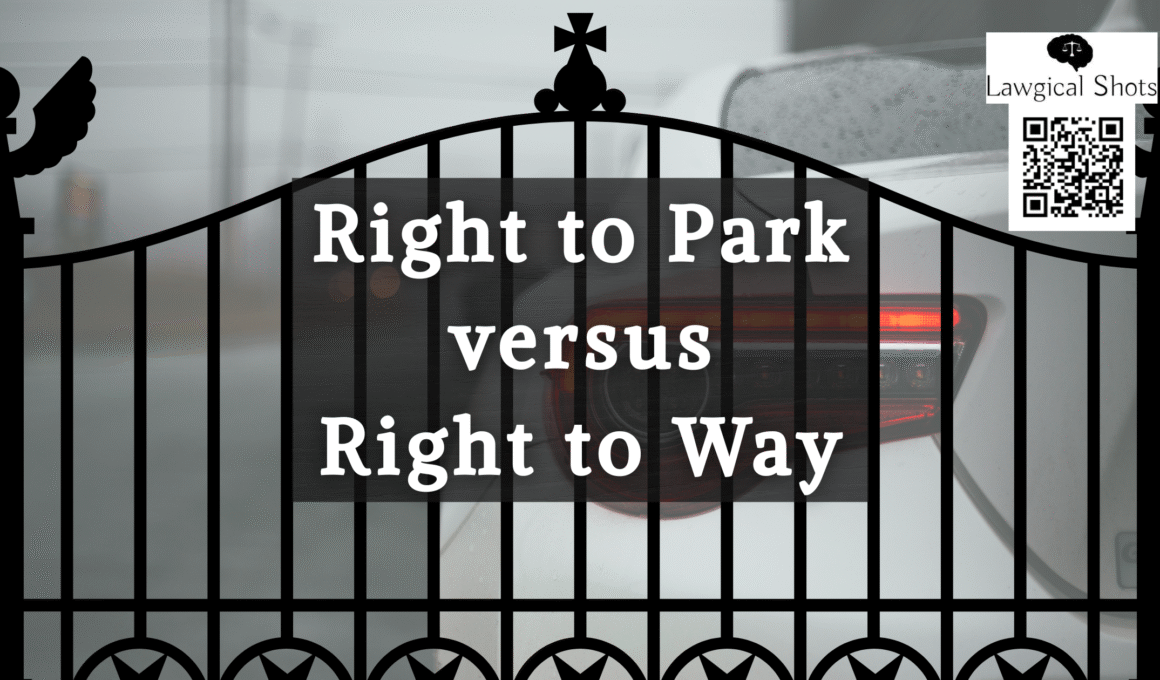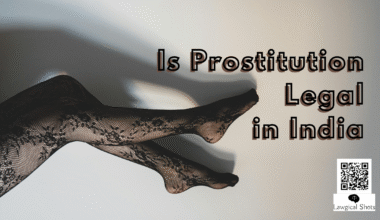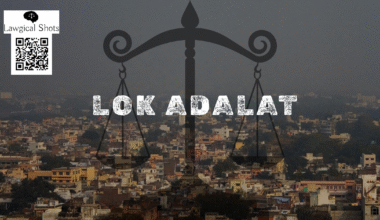In most Indian urban colonies, owning a car is a necessity. However, ask someone in metro cities like Delhi, Gurugram, Bengaluru, etc. about it. They will tell the tale of how many times someone picked a fight over car parking. Here, the concern is a bit tricky. What happens when someone’s “right to park” is in clash with your right of way to your own property? This is the story of Rakesh. A simple resident peacefully living in his colony for years, until a new tenant accompanied by persistent parking nuisance forced him to approach the Court for help.
Right to Car Parking Blocking the Path
Rakesh lives in a residential colony in Delhi. Just like most of them, entrance to Rakesh’s home starts with a small gate that opens directly onto the street. Rakesh and his family had familial relations with their neighbours, until Sharma Ji ka Beta came. Mr. Sharma was a new tenant, middle-aged parents with two young sons. For a few weeks, Rakesh noticed them regularly parking their luxury car right in front of the entrance to Rakesh’s house. This would block both his chances of taking out his vehicle, and sometimes even the pedestrian exit.
For a few days, Rakesh assumed it to be a temporary inconvenience. He even left polite notes on the car’s windshield. A few times, Rakesh would ring the bell to their home requesting to park the car somewhere else leaving the entrance. But Sharma Ji ka Beta didn’t just ignore them, he seemed to take pleasure in aggravating the situation. Things escalated when Rakesh finally confronted him.
A Failed Attempt to Amicable Solution
Rakesh tried his best to resolve the matter calmly, because picking a fight with a neighbour was not something he would appreciate. Rakesh approached the troubling neighbours and explained how his car was obstructing Rakesh’s entrance and violating basic courtesy. However, Sharma Ji ka beta replied with aggression and denial. He claimed, “It’s a public road. I can park wherever I want.” While technically roads are public property, parking in a way that obstructs access to someone’s private property is not protected under any “public road” theory.
Right to Way and Nuisance
Blocking access to a person’s home constitutes a private nuisance, which is a civil wrong under the law of torts. According to the Indian Easements Act, 1882, every property owner has a right to peaceful enjoyment of their property, which includes unblocked access.
Furthermore, Section 270 of the Bharatiya Nyaya Sanhita (BNS) defines public nuisance. If parking obstructs general passage or endangers safety, it may even qualify as an offence under the said provision.
Police Complaint for Wrongful Restraint
After repeated incidents and even a verbal by the other side, Rakesh decided to approach the local police station. He lodged a formal complaint against the neighbour restricting his right to way. Initially, the police were hesitant, treating it as a “civil matter.” But Rakesh consulted with a lawyer friend and reminded the police that public nuisance and wrongful obstruction were criminal offences. He learnt the following legal provisions:
- BNS Section 126 (Wrongful restraint)
- BNS Section 270 (Public nuisance)
After a few follow-ups, the police issued a warning to Mr. Sharma. This only worked for a week—soon he was back to his old tricks.
Parking Injunction through Civil Court
With no permanent solution in sight, Rakesh finally moved the civil court as advised by his Lawyer friend, seeking a permanent injunction under Order 39 Rule 1 & 2 of the Civil Procedure Code, 1908. The prayer to the court was simple – “Restrain Mr. Sharma from parking his vehicle in a manner that blocks rakesh’s residential entrance or restricts access to his property.”
After filing the affidavit, photographs of the obstruction, and correspondence with police, the court soon granted a temporary injunction. The interim order clearly stated that the defendant was restrained from parking or causing obstruction in front of Rakesh’s residence gate. Any breach would attract contempt of court.
The Outcome: Peace at Last
The court order changed everything. Sharma Ji ka beta, now facing possible contempt proceedings, didn’t dare to block the entrance to Rakesh’s home. He started parking his car in the paid car parking shelter in the nearby area. The neighborhood took notice too, and suddenly, people started respecting boundaries.
Legal Takeaway: Know Your Rights
If you’re facing a similar issue, here’s what you should do:
- Document everything – Take pictures, videos, and maintain a record of incidents.
- Communicate first – Try an amicable resolution; because courts appreciate attempts to settle and neighbourhood relations are not spoiled.
- Approach police – File a complaint citing the provisions of Bharatiya Nyaya Sanhita related to wrongful restraint and nuisance.
- Seek legal aid – A civil injunction is a powerful remedy to protect your property rights.
- Stay patient but firm – Legal routes take time, but justice, though delayed, is real and mostly permanent.
Conclusion
In a society where personal space is shrinking, legal awareness is our strongest tool. Rakesh didn’t spark a fight, he just wanted to come out of his house without stepping over someone else’s ego (or bumper). Thanks to the law, the path towards his home lacks the obstructions. If you’re dealing with a similar issue, don’t lose hope. Start with courtesy, but don’t be afraid to escalate when your peace is repeatedly disturbed.








